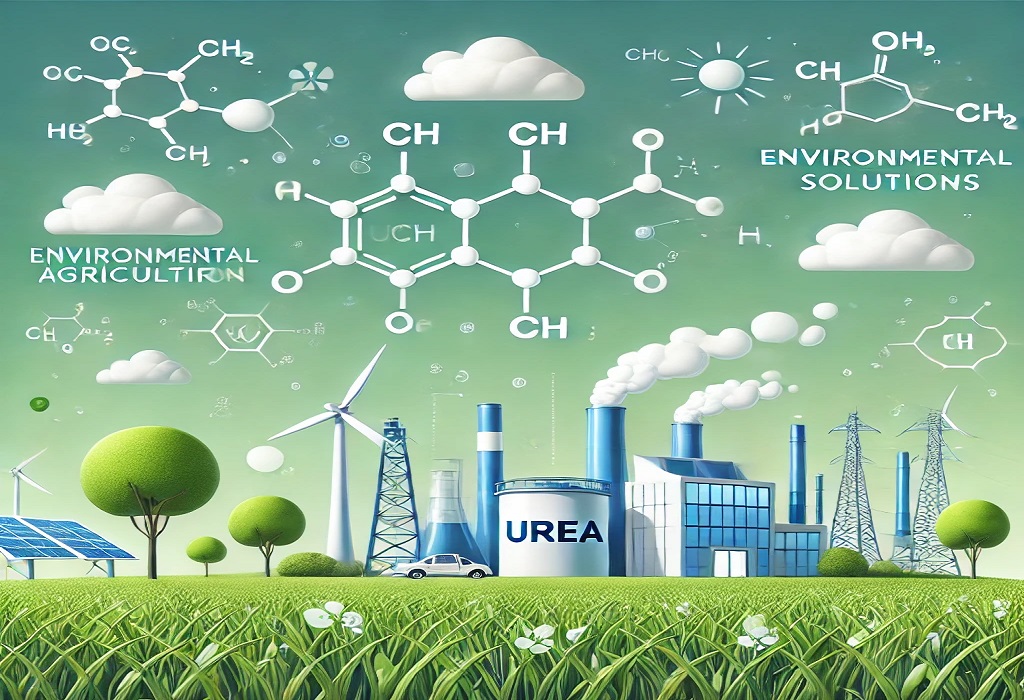Urea, chemically known as CO(NH₂)₂, is a water-soluble organic compound. It is synthesized from ammonia (NH₃) and carbon dioxide (CO₂) in an industrial process. Widely known as a nitrogen fertilizer, its uses extend to critical environmental applications.
Table of Contents
ToggleEnvironmental Applications of Urea
One of the most important environmental uses of urea is in the production of Diesel Exhaust Fluid (DEF).
- How it Works: DEF, a mixture of urea and deionized water, is used in Selective Catalytic Reduction (SCR) systems to reduce harmful nitrogen oxide (NOx) emissions from diesel engines.
- Benefits:
- Converts NOx into harmless nitrogen and water.
- Meets stringent emission standards like Euro 6 and EPA regulations.
2. Industrial Air Pollution Control
Urea is utilized in Selective Non-Catalytic Reduction (SNCR) and SCR systems to reduce NOx emissions from industrial facilities, such as power plants and manufacturing units.
- Mechanism: Urea reacts with NOx at high temperatures to produce nitrogen and water vapor, reducing pollutants significantly.
3. Sustainable Agriculture
Urea contributes to sustainable farming practices by providing a concentrated nitrogen source for crops.
- Eco-Friendly Practices:
- Enhances crop yields, reducing the need for additional farmland.
- Supports efficient nutrient management, minimizing runoff and water pollution.
4. Water Treatment Solutions
Urea is also used in certain water treatment applications. It acts as a nutrient in bioreactors that support microbial growth for cleaning wastewater.
Production of Urea
Urea is produced on a large scale through the Haber-Bosch Process, which combines ammonia and carbon dioxide under high pressure and temperature.
- Energy Efficiency: Modern plants use advanced techniques to minimize energy consumption and emissions.
- Sustainability Note: Some facilities are exploring green ammonia as a precursor, which uses renewable energy sources, making urea production more eco-friendly.
Advantages of Urea in Environmental Solutions
- Cost-Effective: Urea is an affordable option for emission control and crop nutrition.
- Non-Toxic and Safe: Urea is easy to handle and poses minimal environmental risks when used responsibly.
- Versatility: From agriculture to air pollution control, urea adapts to diverse applications.
- Scalability: Urea is produced globally, ensuring availability for large-scale environmental projects.
Challenges and Solutions
Environmental Impact of Overuse: Excessive urea in agriculture can lead to water pollution.
- Solution: Precision farming techniques and controlled-release fertilizers.
Energy-Intensive Production: Urea production relies heavily on fossil fuels.
- Solution: Adoption of renewable energy for ammonia synthesis.
